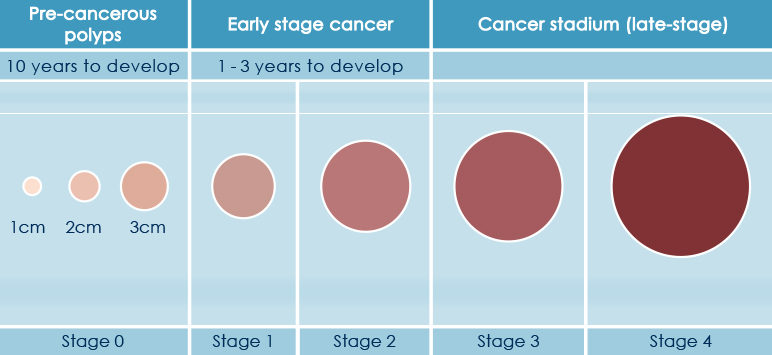Bowel cancer
HELIXCOLON is a prevention program that provides yearly assessment of 14 genes and 246 hotspots associated to the development of colorectal cancer.
Currently, screening tests used to detect colorectal cancer are based on blood detection in fecal samples, or in some cases the rectum sigmoidoscopy.
In western countries, colon-rectum cancer represents the second most common malignant tumor and it has a mortality rate of 13% at 5-years after diagnosis.
The occurrence of colorectal cancer is quite rare before the age of 40y and it is increasingly frequent from the age of 60y reaching a peak at age 80y, affecting men and women equally.
Risk factors concerning colorectal cancer development obesity, genetic predisposition, age, inflammatory chronic bowel diseases and clinical history of colon polyps play a major role.
Colorectal cancer is often silent, having mild clinical symptoms till late stages and is often resulting from the evolution of a benign lesion (as the adenomatous polyps) acquiring genetic abnormalities over relative long period of time (usually several years to decades).
Thus, HELIXCOLON prevention program would ensure a timely identification of degenerating lesions allowing a prompt intervention strategy.




